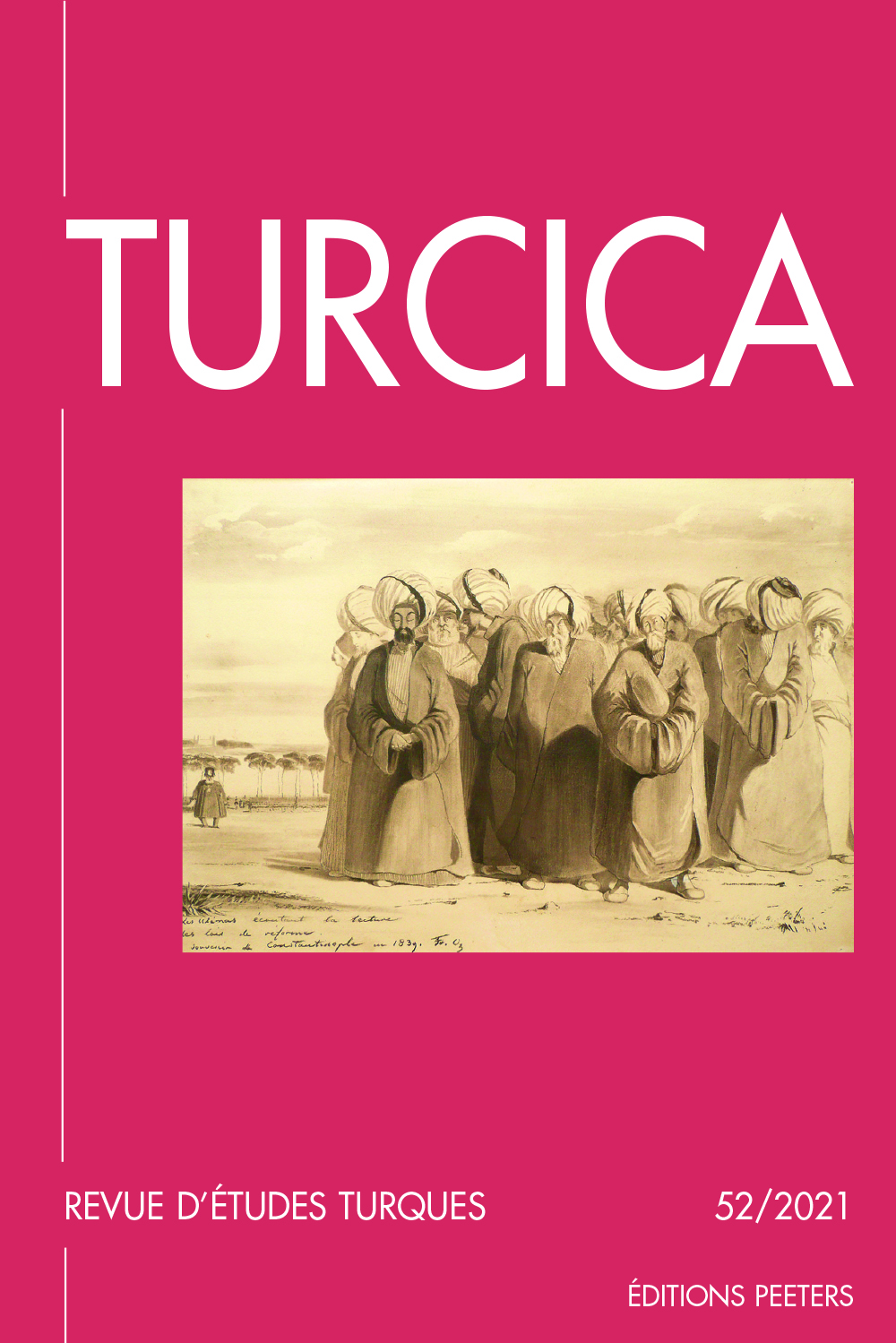 previous article in this issue previous article in this issue | next article in this issue  |

Preview first page |
Document Details : Title: Tracing the Changes in the Representation of the Jew in Ottoman-Turkish Folk Theatre (from Karagöz to Ortaoyunu) Author(s): AMBROS, Edith Gülçin Journal: Turcica Volume: 48 Date: 2017 Pages: 157-185 DOI: 10.2143/TURC.48.0.3237138 Abstract : A comparison of the nineteenth century Ortaoyunu plays with the classic (kâr-ı kadîm) Karagöz plays shows a change of attitude towards the Jew. Signs of a polarization of 'we and they' concerning the Jews have appeared in Ortaoyunu; these signs were absent in the traditional Karagöz plays. In Ortaoyunu, 'the Jew' is characterized as pusillanimous, canny with money, bookishly religious and superstitious. These characteristics were either not as explicitly verbalized or absent in the classic Karagöz plays. On the other hand, the impudence attributed to the Jew in Karagöz has not changed in force but has lost most of its immodest quality in Ortaoyunu. Presumably, the more explicit prejudices against the Jew in Ortaoyunu reflect a change in the popular opinion on the Jews. Une comparaison des pièces de théâtre de l’Ortaoyunu du XIXe siècle avec les pièces classiques (kâr-ı kadîm) du Karagöz montre un changement d’attitude envers le Juif. Des signes d’une polarisation opposant le «nous» au «vous» concernant les juifs sont apparus dans l’Ortaoyunu; ces signes étaient absents dans les pièces traditionnelles du Karagöz. Dans l’Ortaoyunu, «le Juif» est caractérisé comme pusillanime, malin en matière d’argent, studieusement dévot et superstitieux. Ces caractéristiques manquaient ou n’étaient pas verbalisées aussi explicitement dans les pièces classiques du Karagöz. D’autre part, l’impudence attribuée au Juif dans le Karagöz n’a pas perdu sa force mais est devenue beaucoup moins obscène dans l’Ortaoyunu. Il paraît vraisemblable que les préjudices plus explicites à l’égard du Juif dans l’Ortaoyunu reflètent un changement dans l’opinion populaire sur les juifs. |
 |


